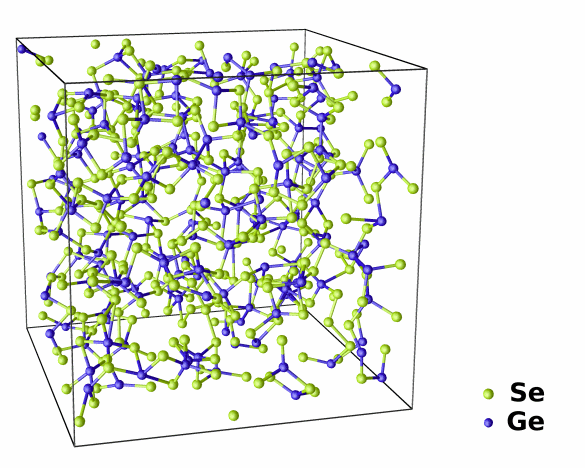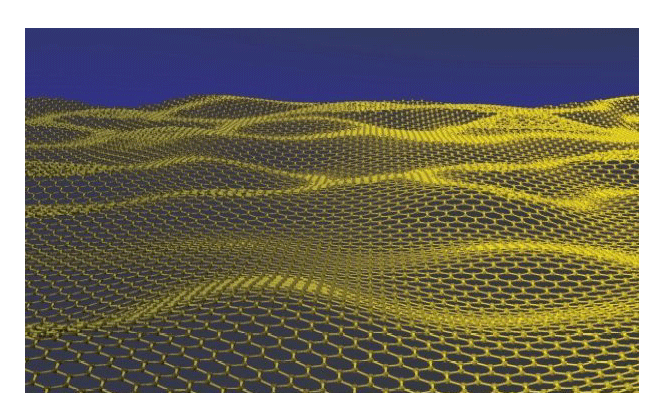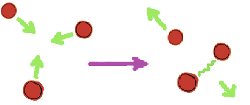Statistical physics and modelization for chemistry, geochemistry and biology
6 thema, 15 researchers, 13 PhD students and PostDocs.
 "Statistical physics and modelization for chemistry, geochemistry and biology" focuses on the study of complex systems. The aim is to establish links between composition, small-scale heterogeneous structure, single or collective dynamics of underlying processes and macroscopic properties of the medium. To this end, analytical and numerical methods are used and developed further. A wide variety of systems, from materials science to biology through analytical chemistry and geology, is studied in the group. An important part of the group's activity concerns both collaborations with experimental groups and comparison between theoretical and experimental results.
"Statistical physics and modelization for chemistry, geochemistry and biology" focuses on the study of complex systems. The aim is to establish links between composition, small-scale heterogeneous structure, single or collective dynamics of underlying processes and macroscopic properties of the medium. To this end, analytical and numerical methods are used and developed further. A wide variety of systems, from materials science to biology through analytical chemistry and geology, is studied in the group. An important part of the group's activity concerns both collaborations with experimental groups and comparison between theoretical and experimental results.
Statistical Physics
5 thema, 12 researchers, 3 PhD Students and PostDocs.

Key words: equilibrium and non-equilibrium phase transitions, disordered systems, glass transition, spin glasses, frustrated systems, granular materials, hysteresis and metastability, wetting, membranes, integrable models.
A major objective of modern statistical mechanics is to understand phenomena induced by strong fluctuations, whether they be of thermal or quantum origin or associated with the inherent disorder present in all real systems. While the physics of « simple »systems, i.e., those without disorder or frustration is, for the most part, well understood, the same cannot be said of complex systems where these effects may be present. For such systems, standard analytical and numerical techniques are often lacking and new approaches, such as self-consistent methods and non-perturbative renormalization, are required. Finally, in the specific area of lattice models with infinite discrete birational symmetries approaches may be developed using the integrability properties of the model.
Quantum Correlations
4 thema, 12 researchers, 5 PhD Students and PostDocs.
 The presence of strong correlations in quantum systems ((super-)conducting solids, magnetic insulators, cold atomic gases, etc.) gives rise to new phenomena that cannot be explained by the existing theories of condensed-matter physics such as Fermi liquid theory, BCS theory of superconductivity or Weiss theory of magnetism. Some well-known examples include high-Tc superconductors, the electron gas in low dimensions, solid or liquid helium 3, spin liquids and cold gases with high spin quantum number. Our research covers the theoretical study of strong correlations in a wide range of quantum systems, both from a conceptual (nature of the ground state and low-energy excitations, description of quantum phase transitions induced by correlations) and a practical (experimental consequences) perspective.
The presence of strong correlations in quantum systems ((super-)conducting solids, magnetic insulators, cold atomic gases, etc.) gives rise to new phenomena that cannot be explained by the existing theories of condensed-matter physics such as Fermi liquid theory, BCS theory of superconductivity or Weiss theory of magnetism. Some well-known examples include high-Tc superconductors, the electron gas in low dimensions, solid or liquid helium 3, spin liquids and cold gases with high spin quantum number. Our research covers the theoretical study of strong correlations in a wide range of quantum systems, both from a conceptual (nature of the ground state and low-energy excitations, description of quantum phase transitions induced by correlations) and a practical (experimental consequences) perspective.




